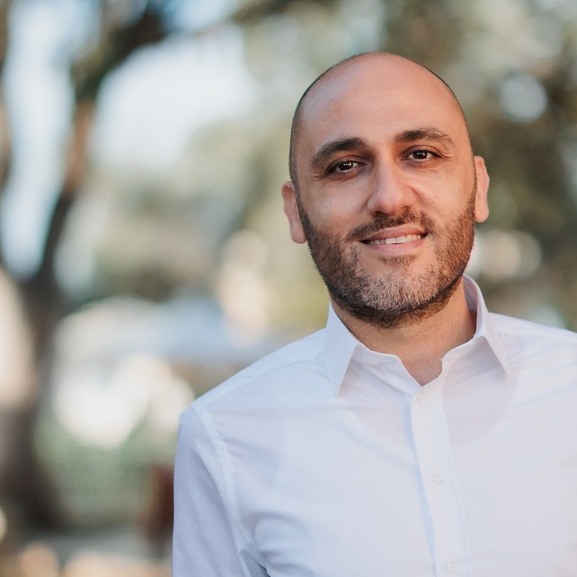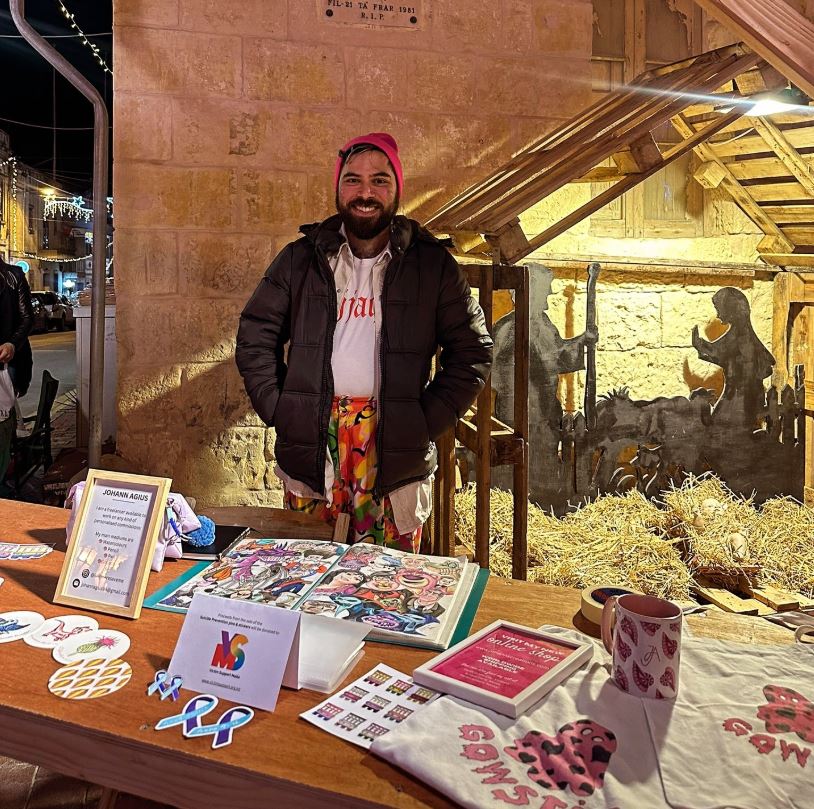Christmas markets have become a staple of the festive season, offering vendors opportunities to showcase their products while drawing communities together in celebration.
However, behind the cheerful façade lies a complex interplay of logistics, costs, and planning.
WhosWho.mt got in touch with vendors and organisers, to delves into the experiences, challenges, and successes of those involved in Malta’s Christmas markets.
Planning for a successful market: The organiser's perspective
Andre Micallef, Sales and Events Manager at Is-Suq tal-Belt, emphasised the extensive planning required for a successful market.
“Preparations begin in and around September, where dates are identified and targeted in a way to not conflict with other activities within the area,” he said. His team ensures coordination with stakeholders, secures permits, and organises logistics to create a seamless experience for vendors and visitors alike.
One of the most notable changes this year was hosting the market outdoors instead of indoors. “This year we tried for the first time to host it outdoors, and it was a resounding success,” Mr Micallef shared.
Feedback is key to their process: “We gather feedback from artisans and visitors, and we also measure footfall and revenue generated compared to previous weeks, months, and years to gauge success.”

Olaf McKay, Mayor of Valletta
Olaf McKay, Mayor of Valletta, highlighted the city’s collaboration with the National Cultural Agency and local artisans.
“We organise Christmas markets in Valletta’s streets that serve as an opportunity for local talent to exhibit and sell their products,” he said, adding that these markets are designed to foster a festive atmosphere while supporting local artisans.
Costs and logistics: Vendors speak out
For many vendors, the cost of participating in Christmas markets is a significant challenge.
Jessica Magro, owner of Carina Print and Designs, expressed concern over high participation fees. “Sometimes it is too expensive to participate in markets without any guarantee that you will break even or make a profit,” she said. She also noted that insufficient promotion by organisers can deter vendors from participating.

Johann Agius at the Gharghur Christmas Market / Instagram
Similarly, Johann Agius, a freelance marketer and artist, mentioned that high stall fees often mean vendors aim merely to cover costs rather than make a profit.
“There are so many Christmas markets locally of differing degrees and popularities that it can be difficult to narrow down which ones to go for,” he said, adding that the level of organisation varies greatly between market organisers.
For Bevan Marwick, General Manager at the Malta Chocolate Factory, logistical challenges were compounded by Malta’s unpredictable weather. “One rainy day or storm destroys all the hard work in making stock, packing stock, dropping off stock, and setting up,” he revealed.
Despite these challenges, Mr Marwick viewed competition positively, saying, “competition allows us as a business to see what others are doing and think outside the box.”
Community connections and branding opportunities
While challenges abound, vendors were unanimous in acknowledging the benefits of Christmas markets in connecting with their communities and building their brands.
Mr Agius explained, “at a market, it’s all about initiating that first attraction to your stall and products, and then it’s about being personable enough to keep the visitor there long enough to be interested.”
He highlighted the importance of mentioning his social media and website to secure potential future customers.
Ms Magro noted that markets are also an excellent networking opportunity: “They are a great way to expose yourself to new audiences and to network with other vendors you would otherwise not have met.”
For Mr Marwick, Christmas markets offered invaluable branding opportunities. “By committing to all these markets, we've been able to show our products to new people and locations who may have never heard of us,” he said, adding that the exposure could lead to future purchases or workshop attendance.
What vendors want
When asked what support they would like to see from organisers, vendors emphasised better promotion and reduced costs. “Marketing and promotional initiatives before the market are extremely essential,” said Mr Agius, urging local councils to attract attendees beyond their immediate localities.
Ms Magro echoed this sentiment, suggesting that markets should be free for vendors and promoted more effectively on social media.
Mr Marwick suggested greater collaboration among organisers. “There are way too many markets all happening at the same time. These small markets would be better joining forces and working together,” he argued, adding that this would create larger, more attractive events for vendors and visitors alike.
Challenges for organisers
Organisers also face significant challenges in managing Christmas markets.
Mr Micallef noted that traffic and logistics were recurring issues but praised the support of local councils and authorities in addressing these. “Although challenges were present, we managed to overcome them with ease,” he said.
In Valletta, Mr McKay highlighted the importance of coordination to create a festive atmosphere. “Every year, we try to offer the best experience of a magical Christmas in Malta’s capital,” he said, emphasising the collaborative effort required to ensure success.
Convergence and divergence of perspectives
A recurring theme across all interviews was the importance of effective promotion and community engagement. Vendors and organisers agreed that well-marketed events are crucial for drawing in visitors and ensuring success.
However, while vendors expressed concerns over costs and logistical challenges, organisers focused on the broader aspects of planning and execution, highlighting their efforts to address these issues.
Another key divergence lay in the perception of competition. While vendors like Mr Marwick welcomed competition as an opportunity to innovate, others, such as Mr Agius, viewed the proliferation of markets as a potential drawback, making it difficult to choose the most beneficial events.
Christmas markets in Malta offer a unique blend of challenges and opportunities for vendors and organisers alike. From logistical hurdles to branding potential, these festive events are a vital part of the local economy and community spirit.
With better collaboration, reduced costs, and improved promotion, these markets could become even more successful in the years to come.
Main Image:
